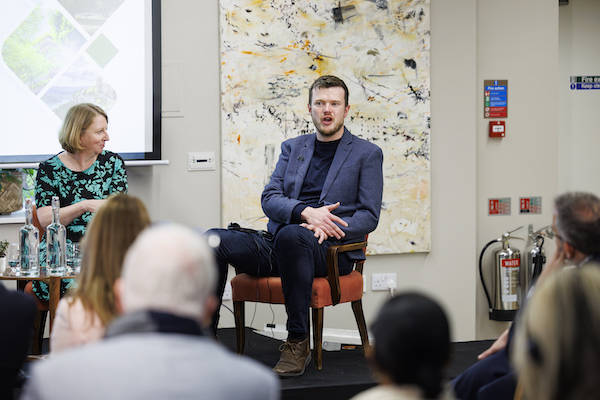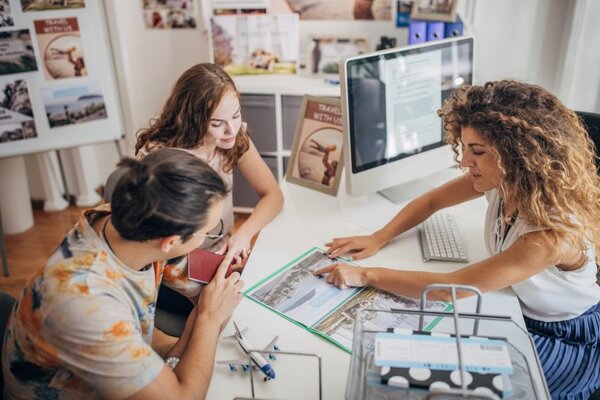Spanish Tourist Office reveals roadmap to 'five-star service' for disabled travellers
 Sarah Dennis
Sarah DennisThe Spanish Tourist Office has made a wide-ranging pledge to continue consulting experts and those with lived experiences of disability to drive its Spain for All campaign, which promotes better standards for accessibility and social inclusivity.
Released on Tuesday (13 August), the Spanish Tourist Office’s first-ever Accessibility Findings Report brings the first phase of the Spain for All campaign to a close and unearths “key pillars” in an area UK director Manuel Butler UK director identifies as “far too often overlooked when addressing sustainability issues”.
The findings, derived from panel discussions held between April and June with a travel industry advisory board on accessibility, has enabled the Spanish Tourist Office to “carve a roadmap towards a more inclusive travel sector”.
These next steps are to educate, by maintaining monthly meetings and growing databases; inform, by sharing, analysing and presenting findings at industry events; collaborate, by widening panel membership and continuing to work with stakeholders; and feeding back, by producing an accessible travel survey this year and ensuring feedback loops.
Panel sessions were moderated by Limitless Travel chief executive and UK accessibility consultant Angus Drummond, with input from the Spanish Tourist Office’s advisory panel members, Spain for All ambassador and Paralympic medallist Ade Adepitan, and Spanish non-profit organisation Impulsa Igualdad, which is dedicated to representing those with disabilities and accessibility requirements.
Writing for TTG ahead of the report’s publication, Butler said: “From both a destination and private perspective, none of us want to say or do the wrong thing when it comes to implementing strategies to cater to demographics which have, historically, not received the attention they deserve.
"Instead of avoiding these hard questions, we found that by acknowledging accessibility can be a complex topic and we may not have all the answers ourselves, we could face the challenge head on."
Defining accessibility
The report assesses the breadth of the disabled community, encompassing people with sensory impairments, mental health conditions and neurodivergence, acknowledging the way accessibility needs are viewed needs to go far "beyond wheelchair users".
It goes on to define accessible travel as “the services, customer journey and needs of holidaymakers who identify themselves as having accessibility needs". The findings note “an information gap for consumers and businesses”, which “tour operators, DMCs, tourism boards, charities and other public and private organisations” have a key role in alleviating".
It details a need for there to be more knowledge and confidence among members of the travel trade to cater for travellers with disabilities, adding the industry should ensure disability representation on fam and press trips to grow knowledge and provide first-person feedback.
The report advocates for more diversity among the travel workforce, “including people with disabilities at every level” to instil consumer confidence.
’Moral and ethical’
The panel sessions concluded that a number of cities and countries were “doing things well”, with positive examples from Spain including Barcelona and Valencia’s metro services.
"Sharing best practice in central depositories, for businesses and innovators to use, would be a positive step towards increased collaboration,” the report said, while advocating too for industry partnerships with “charitable enterprises, universities and specialist consultancies” to drive a data-driven approach to accessibility.
That data-driven approach was “key” and should be held “above and beyond moral and ethical reasons”, the report concluded, nodding to the need to adapt “the entire customer journey” – from booking and transport through to services and staff.
Commercial opportunities for such adaptations exist, the report found, adding “there can be a significant return on investment when catering to the disabled community”.
Adepitan said of the report’s findings: “The disabled community has billions of pounds of spending power, but until now nobody has ever taken a serious look at how to give us that five-star service experience.
“We should not be seen as a burden and should be treated with the same respect as all paying customers. When you are dealing with a person with a disability, you should not make assumptions about what they can and can’t do. Ask them what they need and listen to them, listen to hear and not to challenge, and always have a can-do attitude.”
Sign up for weekday travel news and analysis straight to your inbox

Sarah Dennis
Supplier Directory
Find contacts for 260+ travel suppliers. Type name, company or destination.















